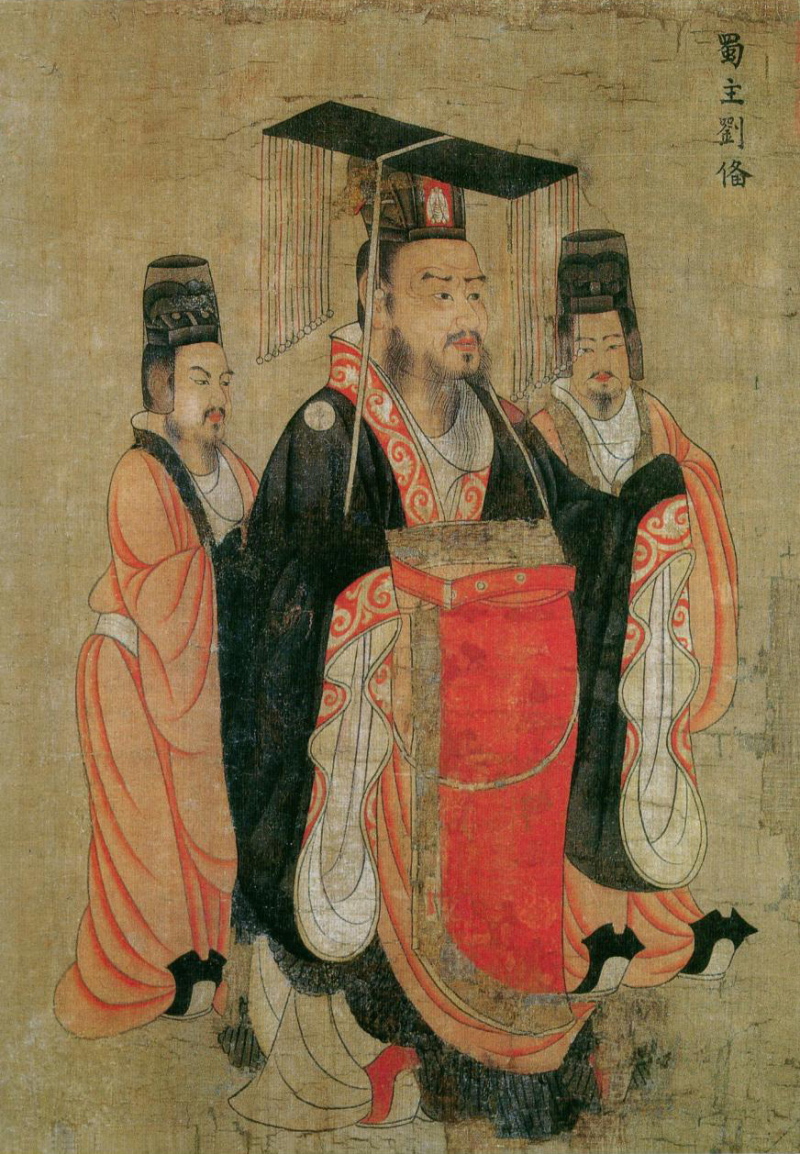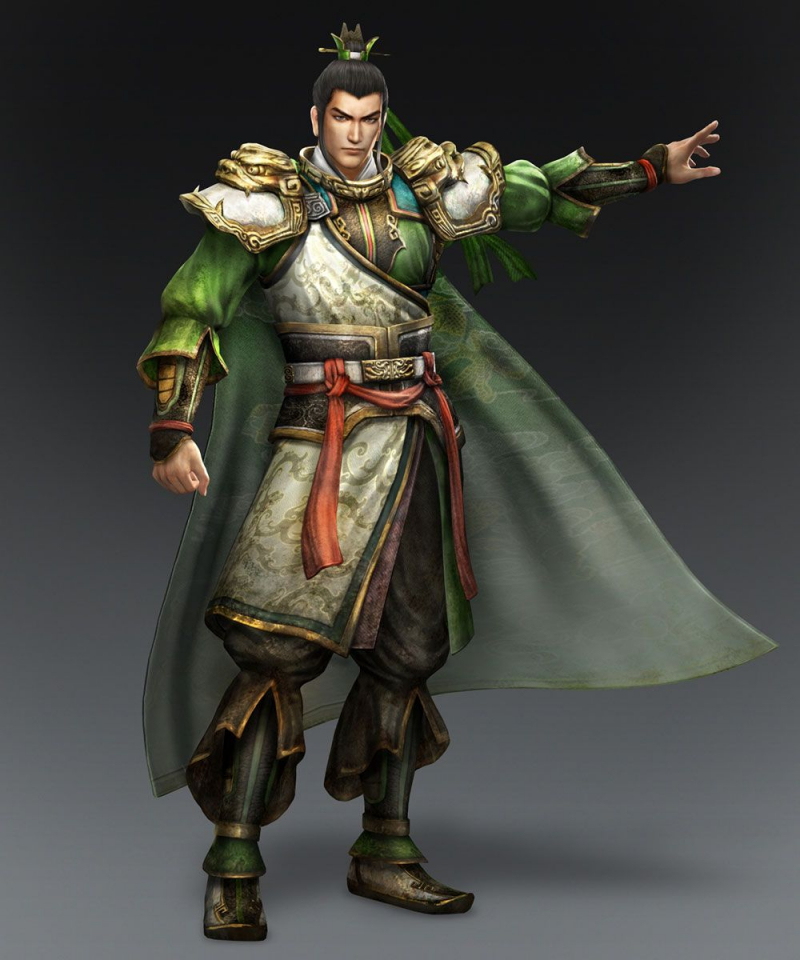Liu Bei
Liu Bei (Chinese: 劉備, 161 - 10 June 223), courtesy name Xuande (玄德), was a warlord in the late Eastern Han dynasty who founded the state of Shu Han in the Three Kingdoms period and became its first ruler. Despite being a distant relative of the Han imperial family, Liu Bei's father died when he was a child, leaving his family impoverished. He sold shoes and straw mats to help his mother. When he was fifteen, his mother sent him to study under Lu Zhi. Liu Bei was known in his youth for being ambitious and charismatic. He formed a militia army to combat the Yellow Turbans. Liu Bei fought valiantly in many battles and became well-known for his exploits. Later, he joined the coalition against Dong Zhuo, after which he joined his childhood friend Gongsun Zan and fought alongside him against Yuan Shao.
Later, he was dispatched to assist Tao Qian in his fight against Cao Cao. Liu Bei inherited the Xu Province thanks to the support of the powerful Mi and Chen families, as well as Tao Qian's last will and testament. Lü Bu joined him after he was defeated by Cao Cao. However, while Liu Bei was away fighting Yuan Shu, Lü Bu seized Xu Province. Liu Bei later joined Cao Cao, and together they defeated Lü Bu at the Battle of Xiapi. Despite Cao Cao's kindness, Liu Bei received a secret edict from the emperor ordering him to kill Cao Cao. As a result, he rebelled against Cao Cao and reclaimed Xu province. Liu Bei was defeated by Cao Cao after a brief alliance with Yuan Shao, and he was forced to join Yuan Shao. Yuan Shao dispatched him to foment uprisings behind Cao Cao's main base, and he later joined his kinsman Liu Biao. Despite the fact that Liu Biao treated him well, he questioned Liu Bei's loyalty and sent him to Xinye to serve as a shield against Cao Cao. According to the Wei Shu and Heroes' Records. Liu Biao, like Tao Qian, wished for Liu Bei to inherit his province over his sons, but Liu Bei refused. Following the death of Liu Biao, Liu Bei and his supporters joined Liu Qi in Xiakou, where they allied with Sun Quan. At the Battle of Red Cliffs, they fought together against Cao Cao.
Liu Bei quickly took control of the majority of Jing Province after Cao Cao's defeat. He then married the sister of Sun Quan. Sun Quan then recognized Liu Bei's authority over the Jing Province and agreed to "lend" him Nan Commandery. Later, Liu Bei led his army to support another kin, Liu Zhang, in his war against the warlord Zhang Lu. Liu Bei betrayed Liu Zhang and took over the Yi Province on the advice of his advisors. After a series of conflicts with Sun Quan and seeing Cao Cao's approach to the Yi province, Liu Bei agreed to give Sun Quan half of the Jing province and led his army against Xiahou Yuan at Hanzhong and seized it. Liu Bei then declared himself "King of Hanzhong" and established his capital in Chengdu. However, his senior general Guan Yu was assassinated soon after by Liu Bei's "ally" Sun Quan, who took over the rest of Jing province. Liu Bei was enraged and led his army against his former ally after declaring himself Emperor to challenge Cao Pi's authority. Despite some early success, his army was quickly forced into a stalemate against Sun Quan general Lu Xun and was defeated. He never returned to Chengdu, ashamed of his failure, and instead settled in Baidicheng, where he died one year later. Advised his heir, Liu Shan, not to follow in his footsteps and to be as virtuous as possible. Liu Bei appointed Zhuge Liang to advise his son on domestic matters and Li Yan to advise him on military matters before he died.
Despite early failures and a lack of both material and social resources that his rivals possessed, he gathered support among disheartened Han loyalists who opposed Cao Cao, the warlord who controlled the Han central government, and the figurehead Emperor Xian, and led a popular movement to restore the Han dynasty. Liu Bei overcame a number of setbacks to establish his own realm, which at its peak included modern-day Sichuan, Chongqing, Guizhou, Hunan, and parts of Hubei and Gansu.
Culturally, Liu Bei is widely regarded as the ideal benevolent and humane ruler who cared for his people and chose good advisers for his government, owing to the popularity of the 14th-century historical novel Romance of the Three Kingdoms. His fictional counterpart in the novel was a good example of a ruler who upheld Confucian moral values like loyalty and compassion. Liu Bei, like many Han rulers in the past, was heavily influenced by Laozi. He was a brilliant politician and leader whose abilities exemplified "Confucian in appearance but Legalist in substance."












